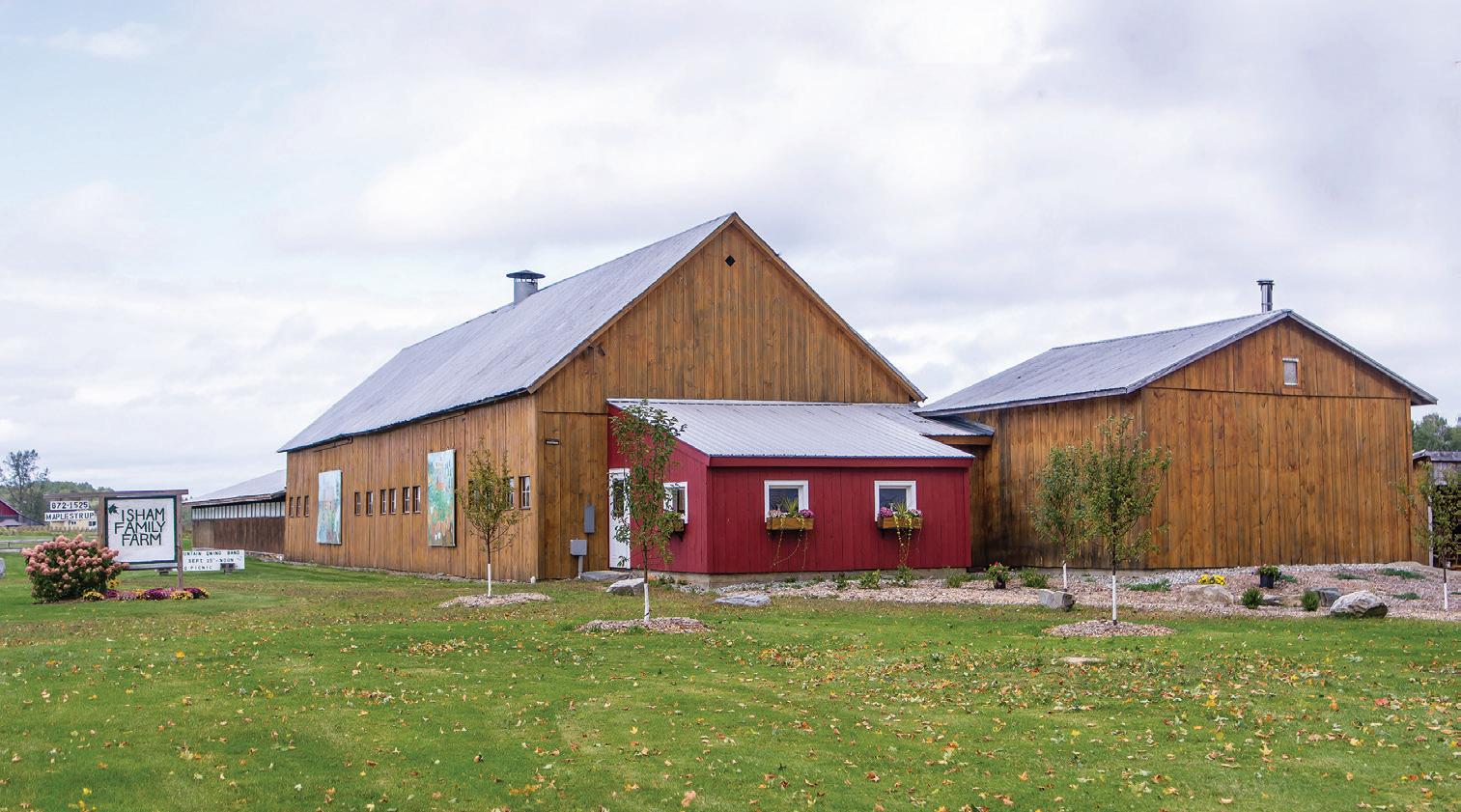
3 minute read
Isham, Beckett square off for selectboard seat
Jensen set to take over for Fehrs
BY JASON STARR Observer staff
There will be a contested election for the remaining year of the Williston Selectboard term vacated in December by Gordon St. Hilaire.
Mike Isham, owner of the Isham Family Farm on Oak Hill Road, and Ellie Beckett, planning commission member and daughter of longtime Town Clerk Deb Beckett, both filed petitions by Monday’s deadline to be on the Town Meeting Day ballot.
St. Hilaire stepped down after he was charged with stalking and unlawful mischief for allegedly vandalizing his ex-girlfriend’s car. He has pleaded not guilty. A status conference on the case is scheduled for March 13 in Chittenden County Criminal Court.
In Isham and Beckett, voters are faced with two native Willistonians who have contrasting perspectives and a 30-year difference in age. The election is set for Tuesday, March 7 at the National Guard Armory on Williston Road. Early ballots are available by contacting the Town Clerk’s office.
Isham would join past generations of Ishams who have served on town boards. The family has owned the farm since 1871. He is a past president of the Williston-Richmond Rotary Club but has never sought elected office.
One catalyst for his candidacy was the recent planning commission vote to move forward with consideration of a subdi - vision of the Glaser property at the corner of Old Stage and Mountain View roads. Isham opposes the decision, because the subdivision application uses a “specific plan” process that overrides the town’s growth management caps on new housing construction.
Beckett, as a member of the planning commission, voted for proceeding with the application.
“I didn’t agree with that vote,” Isham said. “That ignores the town’s growth management plan – which ignores police, fire department, schools, water and sewage allotment. We can’t allow special interests to come in and set policy.
“It’s not a done deal, but the planning commission (vote) was the best place to stop it.”
Managing population growth and land development are important issues for both candidates.
“There’s ongoing tension between the desire for growth and desire for conservation, and that’s the needle that the selectboard and many of the town committees are constantly trying to thread, and it’s a conversation I want to continue,” Beckett said.
At age 32, she notes that her perspective — one of a young professional who rents her home and does not have a spouse or children — has typically been missing on the selectboard.
“I represent a growing population in Williston of younger people who are earlier in their careers, who are renting, are pre-marriage and kids. All the big life decisions have yet to be made. We have different priorities and struggles when it comes to where we live and what we want the future of the town to look like,” she said. “I want to be on the selectboard to ensure that perspective is considered and brought to the table.”
Increasing the amount and variety of housing is one of her key priorities. Funding public land conservation and supporting business owners are two oth -
Isham Farm sets succession plan

The Isham Family Farm is ready to be passed down to the next generation.
Owner Mike Isham, 62, said he intends to sell the eighth-generation Oak Hill Road farm to his nephew, Jordan Isham, later this year.

“I think this is the time to do it,” Mike said. “I’d rather sell the farm when I’m still at the top of my game, so I can help with the transition, rather than wait until I’m too old. Right now I can still work. I can help my nephew with the transition.”
Jordan Isham is the son of Mike’s brother, who currently lives in Colchester. He used to work on the farm in the summers when he was in high school. A graduate of West Point, Jordan serves in the Army and has been stationed in Kentucky. He spent time in Nashville, Tenn., where his wife went to Vanderbilt.
“They are both more than qualified to take all of this and run with it,” Mike said. The Ishams have built a diverse agricultural operation, with a barn for weddings and events, a weekly summer farmers’ market, a maple syrup store, pick-your-own berries and, more recently, a home for a community theater.










